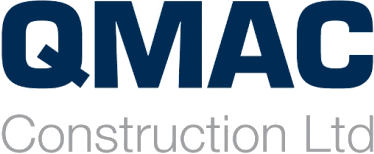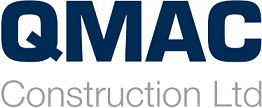
Rhona Quinn on Governance in the Construction Industry
As a Director of a medium size construction company, I had been generally aware of the term corporate governance for about the past 15 years. Since then, the term has been closely associated with failings such as financial mismanagement, sub-standard materials, and lack of compliance with legislation. To ensure QMAC Construction’s long-term sustainability and to avoid the pitfalls which have beset many within our industry, the senior management team and I decided to improve our governance policies and procedures.
What is Corporate Governance?
We need to be clear about what corporate governance is. We have defined it as the policies, procedures and controls that ensures:
1. We make sound business decisions consistently.
2. We comply with all the legislation and regulations associated with the construction industry.
3. We meet and indeed exceed our obligations to our range of stakeholders – staff, supply chain members, and of course to our clients and their agents.
The definition that we based our strategy on was developed in 2007 by an academic Solomon as,
‘The system of checks and balances, both internal and external to companies, which ensures that companies discharge their accountability to all their stakeholders and act in a socially responsible way in all areas of their business activity’.
What Did We Do About It?
As far back as 2008 we decided that we would build our business on quality; sound governance would be a critical part of that. We put in place what we consider to be the infrastructure of good governance:
• We developed a strategic plan based on analysis of the market needs and our capabilities. That meant involving the whole team and making sure that everyone knew exactly where the business was going and were clear about their role in that journey. The vision, mission and values became very important in that process and to this day underpin our strategy.
• The next stage involved completing a detailed risk assessment with risks being prioritised in relation to likelihood and impact. For each risk we developed a mitigation plan which formed the basis of our policies, processes, and controls. We invested considerable time in getting our systems in place and then ensuring that staff took responsibility for implementing them. We realised that having written policies was only the first stage to be effective as they had to be implemented consistently.
• The third stage was to look at how we met and exceeded our obligations to all our stakeholders. We first mapped all our stakeholders and consulted with them to ensure that we were clear about their expectations; the feedback was very revealing and sometimes uncomfortable for the whole team but there was a commitment to build our business based on the values of integrity, openness, and honesty. As a team, we committed to developing better relationships and having a much greater degree of openness with our supply chain members. That involved changing cultures and frequently going back to our core values. This is still a work-in-progress, and we continue to invest in improving this aspect of our governance.
From a practical perspective we invested in training all our staff and ensuring that everyone understood their role in delivering good governance. We developed sound polices, for example:
• A detailed risk analysis is conducted on all potential new contracts. This needs to happen before any contract is signed to work out the impact on all stakeholders.
• A well-thought-out programme is prepared to ensure that we deliver every contract to the agreed timescale and to the standards required by our clients.
• Strong financial management and controls are critical. We monitor costs on all contracts and monitor our financial position on a regular basis.
• We review our governance policies on a quarterly basis and where necessary we strengthen them.
What Are the Benefits for QMAC Construction?
As a company we feel we are less exposed to the risks which are inherent in the construction industry. We know that we are not operating without risks and there are no guarantees in business, but we have identified the key risks and we monitor them closely and regularly. I remember reading that in business ‘what gets monitored gets improved’; we are convinced that taking on board good governance will help us focus on the critical aspects which impact on our performance. The process of developing our governance plan has helped us as a team and continues to ensure that we are all going in the same direction. It has also helped us recognise the importance of continuous improvement and development. We are still at an early stage on our journey, but we are committed to continuing to develop our company based on sound governance principles.
Rhona Quinn is Managing Director of QMAC Construction. She is a Past-President of the Construction Employers Federation and is a Fellow Chartered member of the Chartered Institute of Building. She can be contacted at rhona.quinn@qmacconstruction.com.



